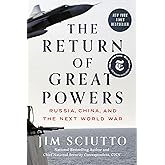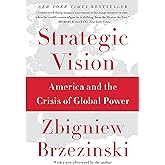
Download the free Kindle app and start reading Kindle books instantly on your smartphone, tablet, or computer - no Kindle device required.
Read instantly on your browser with Kindle for Web.
Using your mobile phone camera - scan the code below and download the Kindle app.

Follow the author
OK
Head to Head: The Coming Economic Battle Among Japan, Europe, and America Paperback – June 1, 1993
- Print length336 pages
- LanguageEnglish
- PublisherWarner Books
- Publication dateJune 1, 1993
- Dimensions5.25 x 0.88 x 8 inches
- ISBN-100446394971
- ISBN-13978-0446394970
There is a newer edition of this item:
Book recommendations, author interviews, editors' picks, and more. Read it now
Frequently purchased items with fast delivery
Product details
- Publisher : Warner Books
- Publication date : June 1, 1993
- Edition : First Edition
- Language : English
- Print length : 336 pages
- ISBN-10 : 0446394971
- ISBN-13 : 978-0446394970
- Item Weight : 11.4 ounces
- Dimensions : 5.25 x 0.88 x 8 inches
- Best Sellers Rank: #4,837,205 in Books (See Top 100 in Books)
- #387 in Exports & Imports Economics
- #1,556 in Business Planning & Forecasting (Books)
- #2,336 in International Economics (Books)
- Customer Reviews:
About the author

Discover more of the author’s books, see similar authors, read book recommendations and more.
Customer reviews
Customer Reviews, including Product Star Ratings help customers to learn more about the product and decide whether it is the right product for them.
To calculate the overall star rating and percentage breakdown by star, we don’t use a simple average. Instead, our system considers things like how recent a review is and if the reviewer bought the item on Amazon. It also analyzed reviews to verify trustworthiness.
Learn more how customers reviews work on AmazonTop reviews from the United States
There was a problem filtering reviews. Please reload the page.
- Reviewed in the United States on July 1, 2014Format: HardcoverThurow presented 3 lists in "Table6.1 The Richest Countries Per Capital in 1870 and 1988." He intended to show that it is difficult for a country to get rich. He was right. But the date he provided in the book also suggests something contrary to commonly held belief concerning the relationship between Western democracy and prosperity.
1. The richest countries in 1988 based on internal purchasing power in descending order:
United Arab Emirates, United States, Canada, Switzerland, Norway, Luxembourg, Australia, Iceland, Kuwait, Sweden, West Germany, Finland, Japan, France, Denmark, United Kingdom, Italy, Belgium, Netherlands, Austria.
2. The richest countries in 1988 based on external purchasing power in descending order are:
Switzerland, Iceland, Japan, Norway, Finland, Sweden, Denmark, United States, West Germany, Canada, Luxembourg, France, Austria, United Arab Emirates, Netherlands, Belgium, United Kingdom, Italy, Australia, New Zealand.
Judging from the above two lists, one is not difficult to reach the conclusion that democracy is correlated with prosperity. But then a light bulb went up. First of all, correlation is not causation. More important, one can also look at a similar list concerning the relative wealth of the countries at 1870.
3. The richest countries in 1870 in descending order are:
Australia, United Kingdom, Belgium, Switzerland, Netherlands, United States, New Zealand, Denmark, Canada, France, Argentina, Austria, Italy, Germany, Spain, Norway, Ireland, Portgual, Sweden, Chile
Compare the 1870 list with the 1988 lists, it is obvious that many rich countries in 1988 were already rich in 1870. Many of the rich countries are democracies in 1988. Were they equally democratic in 1870?
At 1870, Ireland, Australia,were still part of the United Kingdom. NewZealand's was declared a British dominion at 1907. Canada was independent in 1867, so its properity was not the results of democracy.
Napolean III of the Second France Empire had lost the Frano-Prussian war, the Third Republic was newly established.
How about Austria? Seems Austrians had a low opinion on democracy. ""When Paris sneeze," commented the Austrian Chancellor, Metternich, "Europe catches Cold." French-style democracy was a menance threatening monarch, Church, and property - the pillars of every thing he stood for." (EUROPE by Norman Davies)
In short, not many list 3 countries above were real democracies. Indeed, no European countries in list 3 allowed universal male suffrage in 1870 with Switzerland the only exception.
Again, correlation between democratic coutry and prosperous country is not causation. Many countries are rich today because they were already rich 100+ years ago.
- Reviewed in the United States on August 11, 2010Format: PaperbackTaking a snapshot of the economic world of the early 1990's, Thurow made predictions that turned out to be as accurate as George W. Bush's Iraqi Intelligence estimates. Looking through a perspective of three economic superpowers dueling it out, namely the U.S., Japan and Germany, Thurow did not predict the rise of many other nations economically, as well as Japan's struggles during the 1990's.
Thurow put too much empasis on Japan's supposed strengths, including an active national banking policy as a means of promoting exports and job growth. Nowhere in Thurow's analysis is there a place for the rise of Chinese capitalism in a totalitarian state. The dynamics have changed dramatically since Thurow put together this book, which at the time, I would have given four to five stars for.
Economists have a tough job. They put their predictions on paper. We rarely hold a weatherman accountable for missing the high temperature by 5-10 degrees, but in this case, you have to atleast acknowledge that the author missed the green and ended up in a sand trap.
- Reviewed in the United States on July 10, 2006Format: HardcoverEven being an (unemployed)agronomist here in Brazil, I love to read books about world's situation.I read this book about eight years ago.
This book has many usefull informations.The best in this book is chapter 6.At the same time, this book is now outdated.Japan has no possiblity to be world's leader, in XXI Century.Europe is changing.USA had no big problem after all, with military expending or anything else.After all, this book is outdated, but not useless.
- Reviewed in the United States on October 14, 2007Format: PaperbackWith the fall of the dollar and the rise of China together with the bursting of America's housing bubble this book is looking more presentient.
- Reviewed in the United States on June 24, 1999Format: PaperbackHead to Head is a great example of one way books are superior to TV and Internet postings: they stay around for us to learn from the errors made by people TV personalities identify as "experts." When Lester Thurow was writing his book in 1991-1992, the U.S. was in the midst of what we know now was a mild and short-lived recession. But with the bias that many academics and government bureaucrats have against free market forces, which seem to the risk adverse who are attracted to a life in academia and government service, a chaotic way to deal with the powerful forces which provide a nation with jobs, products and the wealth that make mega-universities and fat government programs possible. Thurow took a book that looked as if it were going to be about Japan, Germany and the U.S. competing with each other, head to head, brain to brain as opposed to the old competition based on natural resources, and almost from page one made it into a diatribe warning that without Japan's Ministry of Finance's economic management and Germany's coddling of workers, America was going to be a second or third class nation. Of course we know now that Japan's economy was on the verge of stagnation and Germany is only now recognizing the need to remove employment guarantees if it is going to be globally competitive.
If Thurow had been America's Minister of Finance we know into which businesses he would have directed funds: high definition television for which American consumers have never shown a great interest and the automobile building robots General Motors tried for a few years before replacing them with simpler machines. Meanwhile many of us were typing in cumbersome commands, using gopher and telnet to share information stored on around 70 computers. In 1989 Tim Berners-Lee created HTML and HTTP to launch the World Wide Web. This development seems to have been unnoticed at MIT's economics department, but at the University of Illinois at Urbana-Champaigne an undergraduate student, Marc Andreesen recognized how a point and click way of collecting information might change the world. The beta version of Mosaic came out shortly after Thurow's book and Andreesen then created Netscape.
Computers and the Internet went on to give America the increase in productivity Thurow thought we couldn't achieve because the government wasn't building highways and bridges. The funding came from entrepreneurs who risked their own money and consumers who saw the benefits of the new technology. Once again, history proved that individual investors and consumers can guide Adam Smith's invisible hand to do things no government bureaucracy or academic researcher could envision. But academics and government functionaries, such as Thurow's colleague in MIT's economics department, Paul Krugmann, our new Secretary of the Treasury, Lawrence Summers formerly a Harvard economics professor and his former colleague, Martin Feldstein are arguing that bureaucrats have a better idea of the value of a Thai baht or Korean won than the currency traders who signal to corporate CFO's how many baht they should ask for goods they sell today to pay their German employees in marks tomorrow. They dream of something like an International Ministry of Finance. Some people never learn.
Top reviews from other countries
-
 amazon FanReviewed in Japan on October 28, 2013
amazon FanReviewed in Japan on October 28, 20135.0 out of 5 stars 日欧米の三者共勝利者はいないけど・・・・。
非常に読みやすい内容です。論評はP.クルーグマン先生に任せておいて、ある程度の結果が出てから読むと推測の矛盾やどの指標のどれが無理があったか良く理解できます。欧州の一人勝ちになりませんでしたが、バブル後から日本の進んできた過ちを、現在のアベノミクス効果などと持て囃すマスコミに是非通読していただきたい。確実に目から鱗が落ちますよ。













